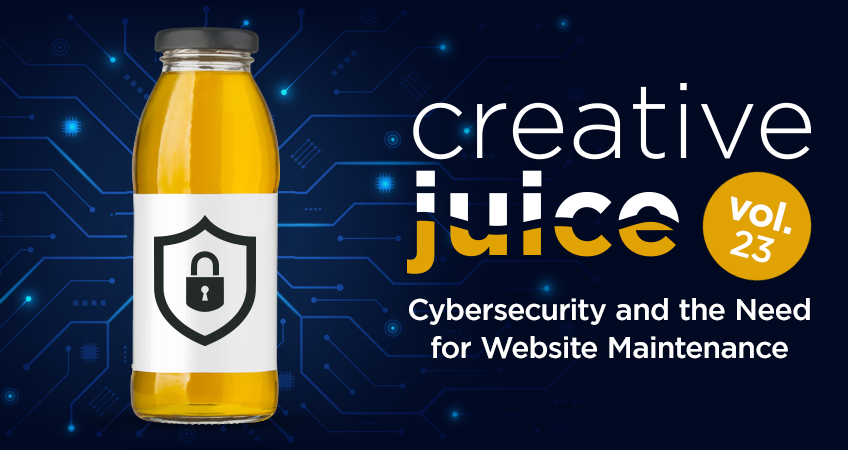The recent Ticketmaster data breach that caused the theft of over 500 million users’ sensitive data raises an important question: How secure are the sites we sign up for [1]?
And, if you’re a business, organization, or individual with your own online space, you may also be wondering: How secure is my site?
From the final quarter of 2023 to the first quarter of 2024, global cyberattack instances rose by almost 30% [2]. In order to protect yourself from hacks, data breaches, ransomware, and more, it’s essential to practice regular website maintenance on all your pages.
Taking the time to update plugins, change your passwords, and perform other routine digital upkeep can save you, your tech team, and your website’s users from lost accounts, stolen identities, and other headaches. Let’s uncover the basics of website maintenance and explore how you can safeguard your page from looming cybersecurity threats.
How Do Malicious Actors Hack Our Devices and Websites?
Keeping your digital space safe and secure requires a clear understanding of how hackers and other cybercriminals actually attack websites. They can exploit a wide variety of vulnerabilities to gain access to your administrative privileges or sensitive information, but their most common tactics include:
- Email phishing scams – These seemingly legitimate messages will link you to fake login portals or malware downloads to steal your user credentials and take control of your accounts.
- Untrustworthy websites – Don’t download from any site you’re not 100% certain is safe and honest about their files’ contents—otherwise, there’s a high chance of ending up with malware on your computer.
- Physical attacks – These include plugging a USB drive or similar device directly into a computer to steal the information stored on it.
- Insecure/public networks – Fraudsters often spoof seemingly trustworthy Wi-Fi networks to grab your device’s information as you connect.
- Weak passwords – If your password isn’t complex and secure, it’s only a matter of trial and error for hackers to eventually guess it.
Luckily, with the right know-how and a proactive attitude, you can prevent many cyberattacks before they even begin.
How Can You Protect Yourself From Cyberattacks?
Defending yourself from cybersecurity threats is paramount to protecting trade secrets, maintaining a trustworthy online presence, and safeguarding your users’ data. To minimize your risk of hacks:
- Use multiple, secure passwords – Using a singular password is a quick way to get all your accounts stolen at once. Our infinitely knowledgeable Web Developer and Technology Specialist, Travis Antoniello, recommends using a standalone password manager (not the one included in your browser) to generate strong, unique codes for each account you have. Don’t share your passwords with anyone or keep them written in plain text to maximize their security.
- Employ Two-Factor Authentication (2FA) – 2FA security such as One-Time Passwords (OTPs) sent via text offer an added layer of protection, as hackers will likewise need access to your phone’s inbox to break into your site.
- Hover links before clicking – Hovering over a link shows you the actual URL it takes you to—allowing you to see if the website is legitimate or waiting to steal your information.
- Ignore spam – Spam and phishing messages urging you to “log in to Facebook or face account deletion,” and similar, unfounded threats are generally ploys to steal your user credentials. If the message seems suspicious, tries to scare you, or includes an odd sense of urgency (e.g., You only have 24 hours to respond), it’s likely a scam to be deleted and ignored.
How Updating Your Website Increases Digital Security
Alongside the above-listed strategies, keeping your website up-to-date reduces its chances of being stolen and held for ransom, breached for its sensitive data, and more. If you’re running your page on WordPress, Travis recommends:
- Keeping your core, plugins, theme, and PHP code as up-to-date as possible
- Creating periodic offsite backups for your files and database
- Minimizing users with administrative privileges
- Enforcing strong password policies across your organization
These steps are easy enough to follow for WordPress, but what if you have a standalone, independently-hosted website to worry about? Well, that’s where everyone’s favorite marketing agency, Coal Creative, comes into play.
Keep Your Site Secure with Coal Creative
Cyberattacks can happen anywhere. Whether you’re located in Northeast Pennsylvania (NEPA), elsewhere in the US, or on the other side of the globe, your site could be at risk of being hacked and stolen. Thankfully, no matter where you’re based, Coal Creative can ease your digital security concerns and keep cybercriminals locked out of your website.
While Coal is in part a marketing firm, we’re also a creative agency and purveyors of robust, meticulous website maintenance. Aside from the traditional tech tasks like updating plugins and testing code, we also offer password security recommendations and digital education for our collaborators.
If you want to learn more about avoiding spam and overcoming other security risks, we’re happy to sit down with you and go over the Dos and Don’ts of maintaining a safe online presence. Or, if you just need someone on retainer to keep a close eye on your site and minimize future cyber threats, we’ve got your back there as well.
Get in contact with Coal to learn exactly how our website maintenance services can improve your homepage and online security.
Sources:
[1] “Ticketmaster Confirms Data Breach. Here’s What to Know.” The New York Times. March 31, 2024. [Online} Available: https://www.nytimes.com/. Accessed June 26, 2024.
[2] “Shifting Attack Landscapes and Sectors in Q1 2024 with a 28% increase in cyber attacks globally.” Check Point. April 10, 2024. [Online] Available: https://blog.checkpoint.com/. Accessed June 27, 2024.
